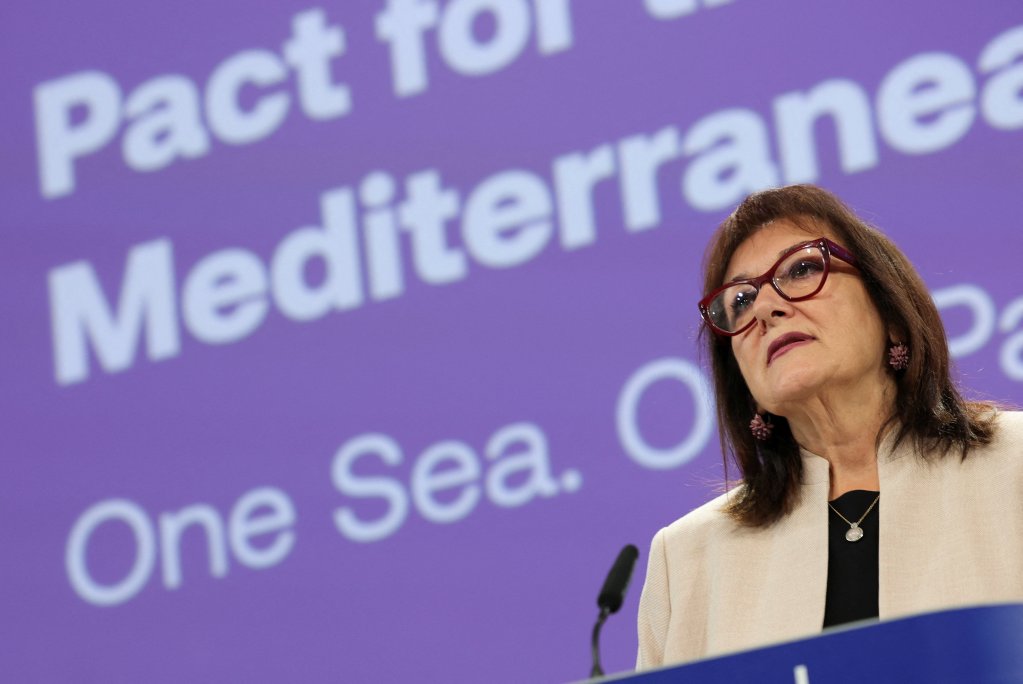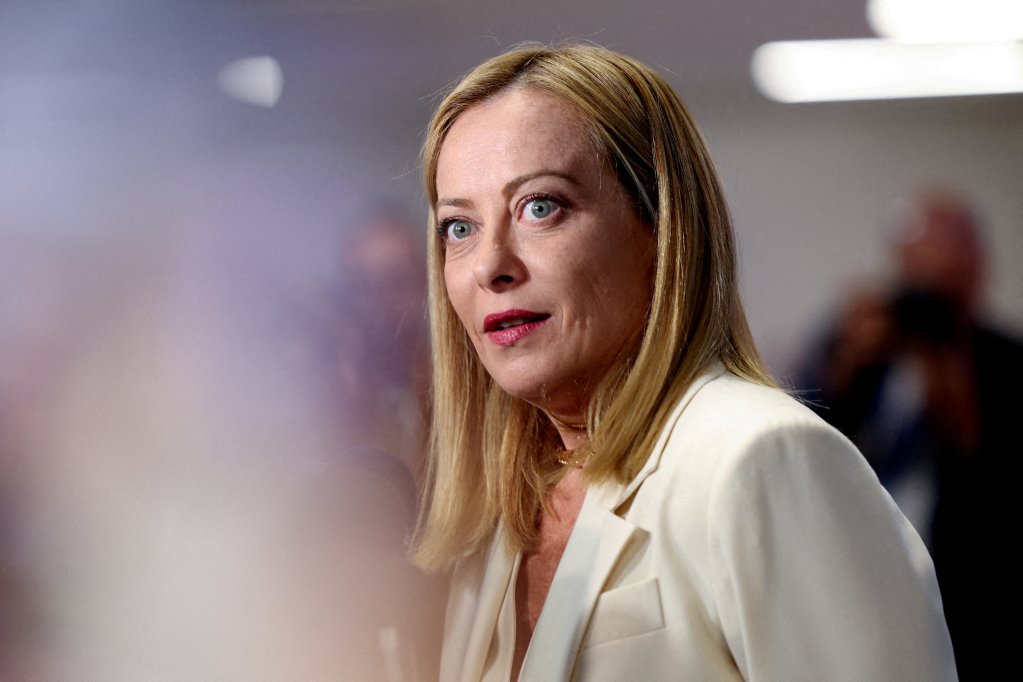The European Commission presented plans for a new "Pact for the Mediterranean" to reshape its relationship with nearby countries outside the bloc. Instead of focusing solely on stopping irregular migration, the deal would equally support job creation and economic partnerships with partner countries, if it gets full political backing in Brussels next month.
Titled "One Sea, One Pact, One Future" the proposed pact will focus on solutions to migration, security and border management by shifting much of the EU's activities in this area to preventative measures.
In addition to focusing on trade, education, environment, agriculture and other issues, the tabled "Pact for the Mediterranean" will take a more holistic approach and will include more than a hundred individual projects affecting nearly all aspects of everyday life in the countries it is applied to -- all in a bid to mitigate the root causes of migration.
The countries included in the proposed pact include Algeria, Egypt, Israel, the Palestinian Territories, Jordan, Lebanon, Libya, Morocco, Tunisia and Syria. However, certain aspects of the pact could also be expanded to other countries such as Mauritania, Senegal, Turkey, the Western Balkans, the Gulf states and others in certain circumstances
The projects that are planned to be rolled out under the pact are currently budgeted with 42 billion euros in the years 2028 to 2034, though it is unclear how much of this funding will be made available from scratch, and how much of it is based on repurposing previously allocated funds.
"The aim of the pact is to bring about a paradigm shift, which is necessary to realize the full potential of our partnership and to work together based on the principles of co-ownership, co-creation and joint responsibility," a press release about the launch of the pact states, adding that the main goal of the pact is to support young people in particular.
Read AlsoFrom borders to workplaces: How Europe is reinventing immigration control
Three pillars, one policy
European Commissioner for the Mediterranean Dubravka Suica said that the pact would mark a departure from the EU's approach to date in dealing with Mediterranean partners outside the bloc.
"We underlined that we are creating partnerships among equals," Suica said during the press conference, highlighting that the pact is built around three core pillars.
"The first pillar focuses on people. People at the center, driving force of the change. We want to empower people by creating a common space for learning, culture, sports and mobility," the commissioner explained, adding that one of the key targets in this area was to bridge "the skills and qualification gap in labor markets … strengthening civil society in local communities."
The second pillar of the pact deals with sustainable and integrated economies, where it intends to "modernize trade and investment relations."
Finally, the third pillar relates to "cooperation on security, justice and law enforcement, as well as on migration management," where various projects will help combat organized crime and terrorism, including people smuggling and trafficking.
"Our goal is to ensure better conditions, so that people are not forced to leave their homes in search for better life. So the pact will support the efforts to prevent illegal departures, of course, fight smugglers, while creating legal pathways to address Europe's labor needs," Suica summarized.

Read AlsoIOM and African Development Bank strengthen partnership
Fighting the root causes of migration
This proposed holistic approach with Mediterranean partners is somewhat of a shift from the EU's current approach. Deals signed in recent years with countries such as Tunisia, Egypt, Mauritania and Jordan to keep migrants at bay amount to a combined bill of 9 billion euros without addressing the root causes of migration.
With EU investments under the new scheme, the goal is to create job opportunities while at the same time advocating for sustainable industries and future-proof opportunities.
Details about the concrete are scarce at this point, and those that have been presented — such as the establishment of a cross-border Mediterranean University and the launch of an EU-wide firefighting program in Cyprus — appear to only vaguely be linked to migration.
However, Vice-President of the European Commission Kaja Kallas said in her opening remarks presenting the new initiative that establishing security in the Mediterranean region through various means was the common denominator throughout.
"The geopolitical importance of the Mediterranean cannot be overstated. It has been at the top of our foreign policy agenda since day one of this Commission. From the fall of the Assad regime to the war in Gaza, the region remains on a knife's edge," she said.
Read AlsoUNHCR chief Grandi: 'We must face what causes people to flee'
Pact to be presented for assent next month
The Pact for the Mediterranean is proposed for political endorsement next month.
It is expected to enjoy support, especially by countries in the south of the EU, which are most affected by irregular migration.
The Italian government, for example, has rolled out its own partnerships with North African governments to create opportunities for people there in a bid to bring the number of people who are desperate to migrate down, known as the Mattei Plan.

Read AlsoMeloni presents plan to strengthen Africa's position -- but to whose benefit?
During the recent European Council meeting, Italian Prime Minister Giorgia Meloni urged member states to at least partly shift their focus to the Union's southern flank rather than solely focusing on the threat posed by Russia to the EU's eastern members.
Read AlsoEU urges Libya to combat Mediterranean migrant sea crossings
